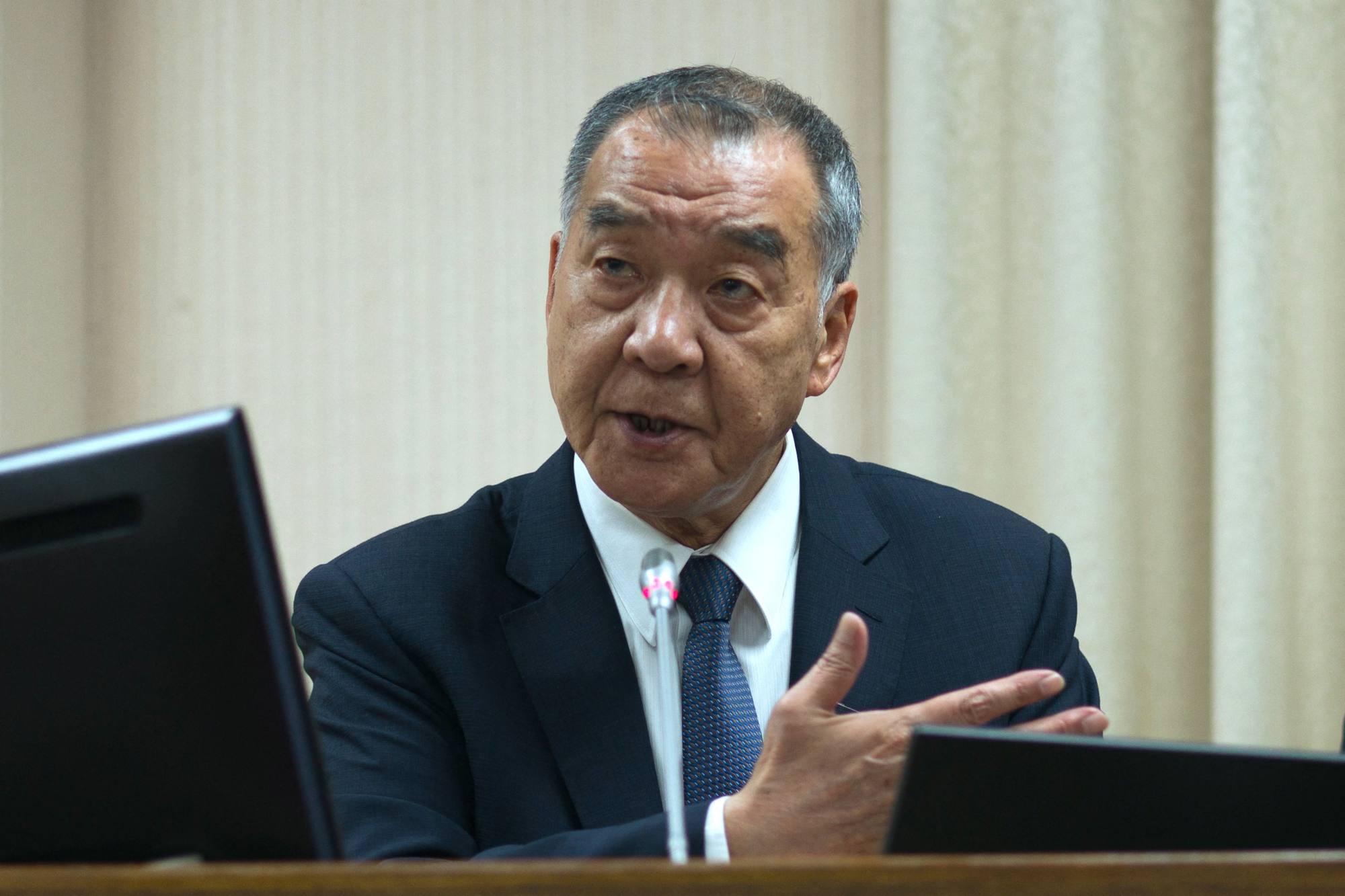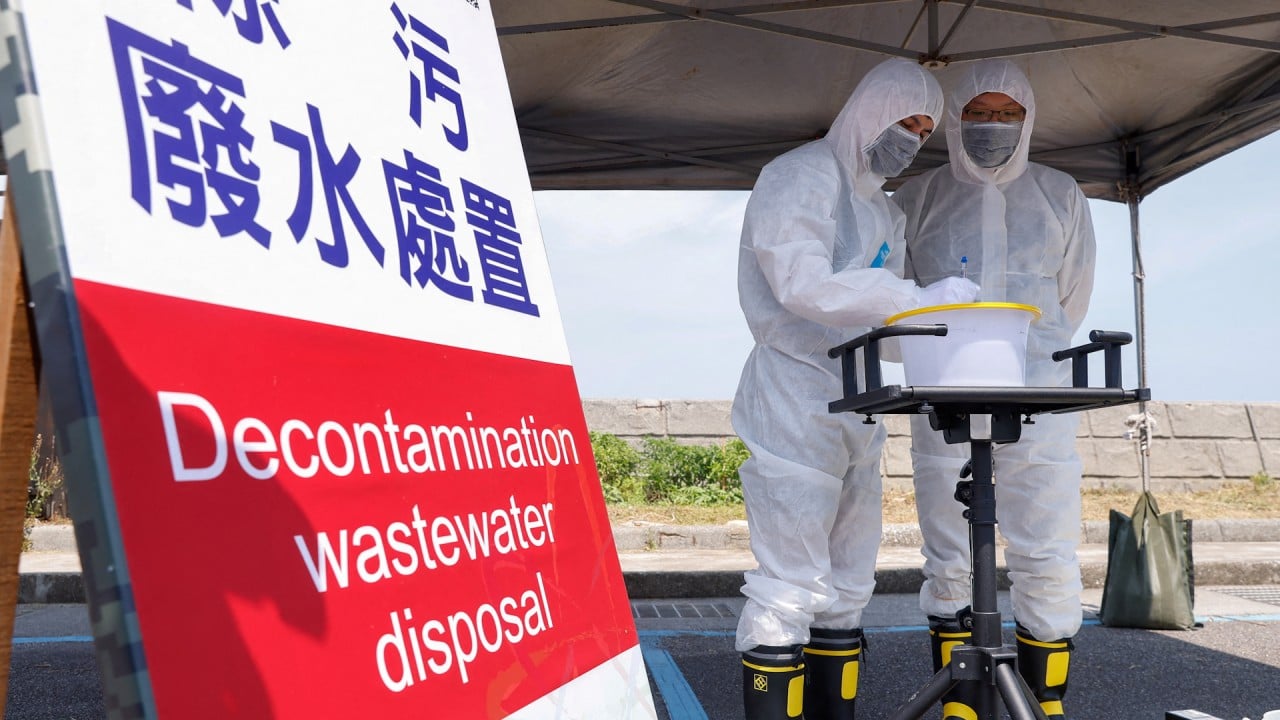The apparent failure of Israeli intelligence exposed by the Hamas attack underlines the importance of accurate information in keeping the island’s defences prepared, Chiu said.

“This is the first lesson we can draw from the Israel-Hamas conflict,” Chiu told the island’s legislature on October 12, as lawmakers considered the implications of being caught off guard by a similar offensive from the Chinese mainland.
“No country can ward off a saturation missile and rocket attack, and what we can do is to readjust our [troop and weapon] deployments … and tactical positions,” he told the assembly.
Intelligence works therefore are “highly important so that we can work out countermeasures beforehand” to deal with such an assault.
Chiu said the collateral damage of war could be “harrowing”. Taiwan must be able to prepare itself for conflict, but that did not mean the island should court war, he added.
He reassured the legislature that the island’s forces have been working “tirelessly” to monitor the Taiwan Strait while “paying attention to any signs and evidence of enemy advancement”.
Chiu also said that the sudden escalation of the conflict had prompted Taiwan to enhance its ability to forecast possible threats, starting with a task force that has been established to study the unfolding situation in the Middle East.
‘Our 9/11’: how Israel was duped as Hamas planned attack
‘Our 9/11’: how Israel was duped as Hamas planned attack
Taiwan has been under intense military pressure from the PLA in the seven years since Tsai Ing-wen from the independence-leaning Democratic Progressive Party was elected president and refused to accept the one-China principle.
Also known as the 1992 consensus, the principle recognises that there is only one China, while each can have its own interpretation of what that stands for. Beijing regards Taiwan as part of its territory to be brought under control, by force if necessary.
While the situations in the Taiwan Strait and the Middle East are very different, analysts said lessons could still be drawn from the Israel-Gaza conflict, just as Taipei had been able to learn from Russia’s war in Ukraine.
Taiwan is trying to boost its defences. It’s learning from Ukraine
Taiwan is trying to boost its defences. It’s learning from Ukraine
Max Lo, executive director of the Taiwan International Strategic Study Society, said Taipei “must take note” of “swift and effective troop mobilisations, for example”, referring to Israel’s ability to call up 300,000 reservists soon after the attack.
“The Israelis have undertaken a long period of training and are ready for war once enlisted,” Lo said. He acknowledged that Taiwan could also quickly call up 300,000 reservists, but they are mostly “part-time soldiers, not skilled to fight in war”.
The inadequate training given to Taiwanese reservists after discharge has been known for some time, drawing criticism from the US, which does not recognise Taiwan as an independent state but is opposed to any change of the status quo by force.
This rebuke from Taipei’s largest arms supplier and informal ally prompted the island’s military to order longer and more intensive drilling for its reserve troops, to keep them on a par with their peers in the active forces.
Better training needed if Taiwan extends mandatory military service, experts say
Better training needed if Taiwan extends mandatory military service, experts say
In addition to strengthening its troop mobilisation and intelligence capabilities, observers said Taiwan could also learn from Israel about maintaining a lasting public enthusiasm to fend off the enemy in the event of a conflict.
All of the analysts interviewed agreed that the willingness of Israelis to fight for their country was worth emulating.
“The Israelis are eager to fight for their country and their people are willing to answer military calls even when they are abroad, said Su Tzu-yun, a senior analyst at the Institute for National Defence and Security Research in Taipei.
“There is a need for us to encourage such patriotic morale within our people, especially the youngsters, to safeguard Taiwan in the event of a cross-strait conflict,” he said.
After Ukraine, more Taiwanese willing to fight for island: survey
After Ukraine, more Taiwanese willing to fight for island: survey
According to Su, Taiwan should not rest its hopes on others if it wants to preserve peace.
“The Hamas surprise attack teaches us that we cannot relax our vigilance as the enemy is ready to attack us any time,” he said, adding that the island’s military must make the “best preparations”.
Chieh Chung, a security researcher at the National Policy Foundation – a think tank affiliated with the main opposition Kuomintang party – agreed that, discounting the training factor, Taiwan’s military could call up 300,000 people in two to three days.
“But more importantly for us is to be able to mobilise our troops before [an] attack,” he said, adding that the government’s big challenge would be to get the timing right on such a move.
“If we conduct a national mobilisation when the communists attack us, we might not have enough time to complete the enlistment. If we do it [earlier] but the PLA does not come, we may create an economic standstill within Taiwan,” Chieh said.
A premature call would “paralyse markets and scare away investors”, making the timing “highly important”. Taiwan must excel in its intelligence operations if it is to get it right, Chieh said.
The most obvious difference with the Middle East situation is that there is an ocean between Taiwan and the mainland, while the Israel-Gaza conflict is across land borders.
This offers an advantage for Taiwan. While Hamas need only to rain its rockets on Israel from hundreds of underground tunnels in Gaza, the PLA would have to move troops across the Taiwan Strait, as well as fire missiles in any attack on the island, Chieh said.
“Before an attack, the PLA would need to mobilise its troops from across the mainland and it would be difficult for such a big action to stay undetected.”



